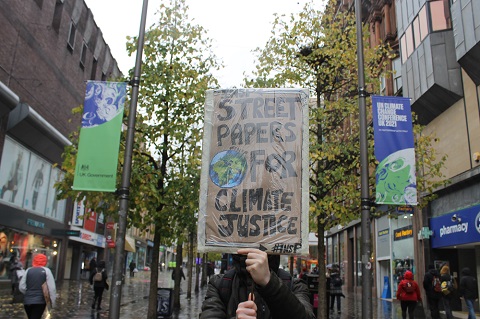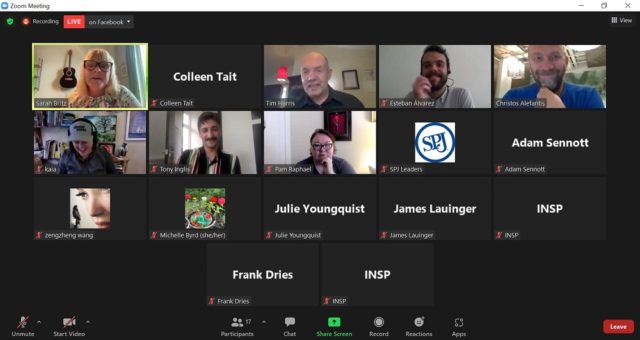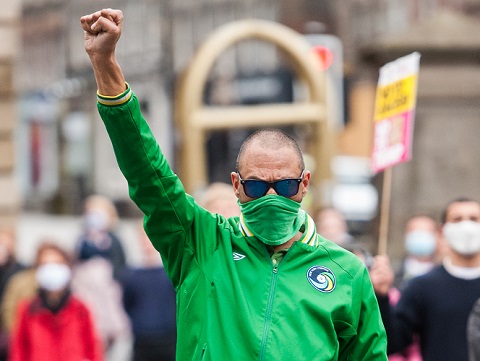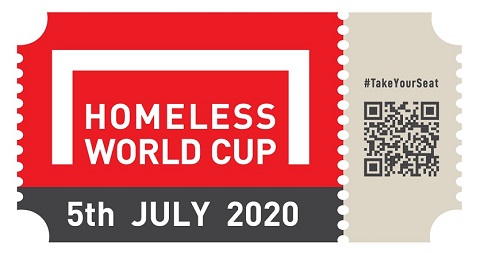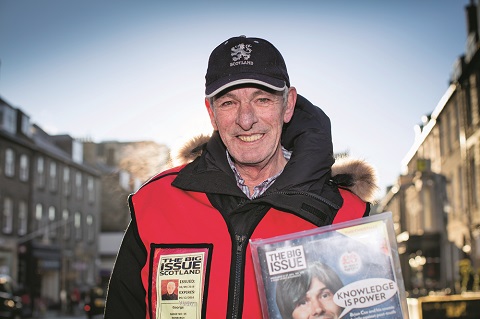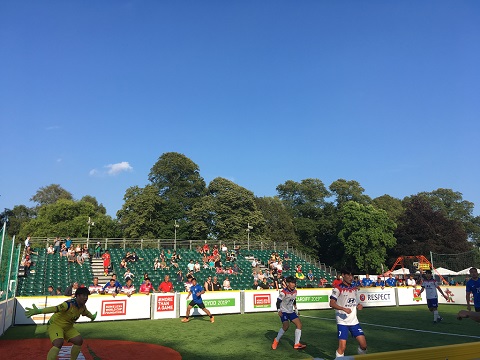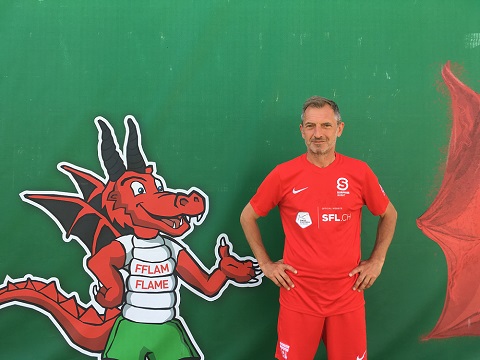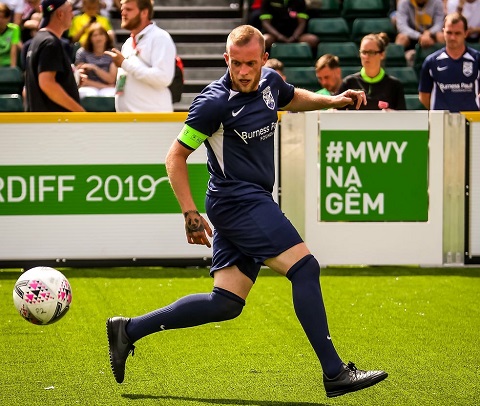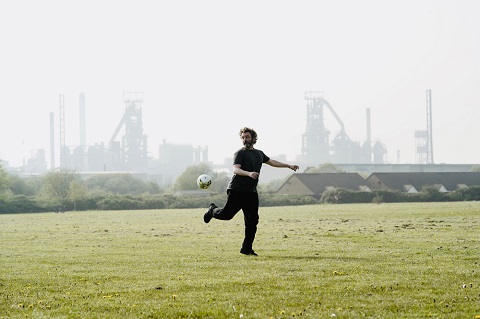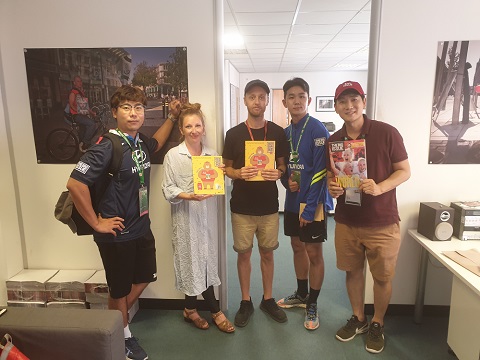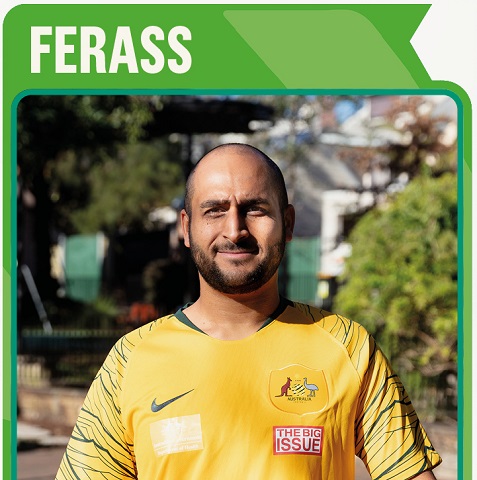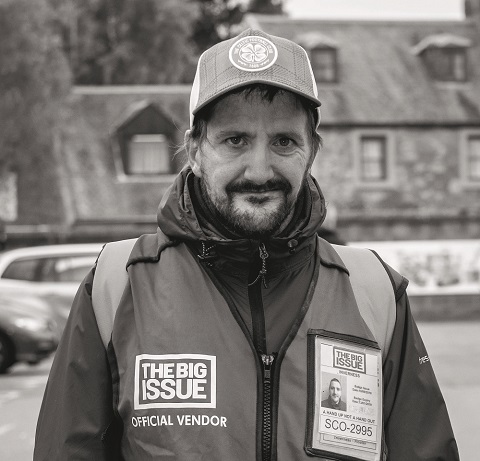In the midst of a “rough childhood” in Edinburgh, football was the thing that kept Stephanie Tweed going. Since then she’s faced homelessness, addiction and mental health problems, but football is yet again giving her a positive way out.
This week, Stephanie has been playing for her country in front of thousands of fans, including Scotland’s First Minister Nicola Sturgeon. She is one of the stars of the home nation’s women’s team at the Homeless World Cup in Glasgow. The excellent team made it all the way to the semi-finals of the tournament before narrowly being beaten by Kyrgyzstan.

“It is amazing, the crowd are electric,” says the talented striker, speaking in a gap between games as the tournament bustle continues all around her. “The atmosphere in George Square is buzzing. Just to be a part of this is amazing. To be picked for your home country, and it’s in your home country. Wow.”
Steph’s pride is palpable as she wears her country’s strip. The home team has seen full stands at their games all week, and she carries the weight of the supporters’ expectation with her head held high. It’s hard to believe it’s less than a year since she found herself without a home, battling addiction and disconnected from society.
“I wasn’t a functioning member of society,” she says. “I wasn’t paying bills. So I finally lost my house last year and I got put into a hostel in Edinburgh.”
It was at Dunedin Canmore’s homeless hostel in Leith, northern Edinburgh, that Steph discovered Street Soccer Scotland – the inspiring local partner organisation of the Homeless World Cup – and she saw the beginnings of a route out of addiction and homelessness. Edinburgh-based Street Soccer Scotland regional manager Andy Hook recognised her talent immediately.

“They [the hostel staff] started taking me along to the football, where I met someone who saw something in me that I had never seen in myself,” Steph says. “I never had much self-confidence at this point. But he said to me, ‘if you keep your heed down and you keep clean, you have a good chance of getting yourself into a squad.’
“At that point something must have clicked in me.”
Following Andy’s advice, Steph went back to her hostel that day and “rattled for five or six days” going off drugs cold and getting herself clean. The promise of representing her country – and the confidence that someone had finally shown in her – turned out to be the impetus she needed.
“I did it the hard way,” she recalls. “I didn’t get medicated or go to a treatment centre. I locked myself in a room. Something clicked in the back of my head. He believed in me when I never believed in myself. I needed that wee cuddle.”
From there, Steph has been a regular at street soccer practice, playing two or three times a week to get herself ready to be on the Homeless World Cup team. “It has given me ambition back in my life. Drugs give you fake confidence, and now I have started to get a bit of real confidence back,” she says.

For Andy, it’s been a pleasure to see Steph’s self-assurance grow.
“I’m delighted the way she’s come through, because I see a big difference in her,” he says. “She’s done really well to get into the Scotland squad. She’s proven that she can be a decent player, but also she’s mixing with everybody here and she’s enjoying it. I hope she can continue to do that and bring the confidence into the rest of her life. She’s a great lassie.”
After years of isolation, Steph’s newfound belief in herself has also allowed her to reconnect with family and friends. She is now living in a supported tenancy in Gorgie, west Edinburgh, as part of a scheme that helps homeless people learn about managing a home. If it is successful she will be offered a permanent place to rent.
“I was quite isolated person through drugs and my mental health, she admits. “But I have been trying to rebuild my life and part of that is to make amends with the people that I have upset in the past.
“I have started a relationship back with my mum and my brothers. They are all so proud of me.”
The tournament in the centre of Glasgow feels to Steph like a “showcase” of her progress. The Homeless World Cup expects that more than 100,000 fans will have attended the competition throughout the week.

Among the Scotland supporters was Nicola Sturgeon, who said she was really proud to have the Homeless World Cup in Scotland – and expressed her delight at witnessing wins for both the Scottish men’s and women’s teams.
“It’s been brilliant. It’s so fast-moving, so entertaining,” she told STV after watching Scotland play. “The sport’s great, but the stories and the whole motivation behind it is absolutely outstanding.”
Though she and the whole team were “buzzing” to see the First Minister at their game, for Steph the most important people in the crowd are a bit closer to home.
“I’m so proud of myself and all the lassies in this group,” she says. “We have worked really hard for this over the last six months, as a team. And now for family and friends to come and watch, we can show them what we have worked so hard for.”
Additional reporting by Alison Gilchrist.





